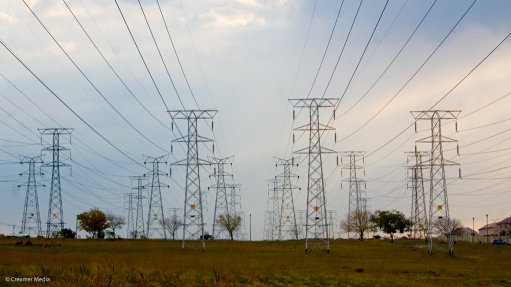Action needed to reverse SA canned deciduous fruit sector’s declining competitiveness
South Africa’s canned deciduous fruit sector has, with one exception, been on a declining international competitiveness trajectory since 2016, a PhD research project at Stellenbosch University has found. Canned deciduous fruits embrace peaches, pears, apricots and mixed fruits. The sector has been globally competitive from the early 1960s, and from 2002 to 2021 was the third most competitive such industry in the world, after Greece and Spain.
However, the South African sector’s Relative Trade Advantage (RTA) rating (which measures competitiveness), which stood at 23.03 in 2016, had fallen to 17.02 in 2020. The exception to this decline was the pears subsector, whose RTA rating actually increased from 33.96 to 40.40 over the same period. Of course, the strong performance of canned pears increased the average RTA for the whole sector and disguised just how much other subsectors declined.
The sector was still internationally competitive, but, if the current trend continued, it could lead to job losses and a decline in the country’s foreign exchange earnings, warned the researcher, Dr Heinrich Jantjies, whose PhD was in the field of Agricultural Economics. Jantjies is, in his professional life, Tiger Brands’ group risk, safety and security director.
“A well-developed industry infrastructure, the availability of storage and handling facilities, competition in international markets, bargaining power of canning firms, relationships with international retail markets and agents, and access to and availability of renewable energy are some of the factors that help the industry to remain competitive,” he affirmed. “On the other hand, things like a lack of innovation in canning technology, a lack of local sales and access of new competitors in the local market, the possibility of land expropriation without compensation, the impact of climate change on fruit yields, and negative perceptions associated between [sic] canned fruit and health, constrain the industry’s competitiveness.”
Jantjies has proposed that the industry and government jointly create and implement what he called a Deciduous Fruit Canning Industry Recovery and Competitiveness Plan (DFCIRCP). “The DFCIRCP can build a shared vision and strategic actions with government support, public-private partnerships, and alignment with the National Development Plan and the National Agro-Processing Master Plan to stimulate competitive growth in the industry,” he said.
There were various things that the sector could do itself, to improve its competitiveness. It should cut high administrative and transaction costs, use smart technology innovations to increase efficiency, and continuously upgrade the skills of its employees. It should also increase the effectiveness and efficiency of the fruit processing companies and increase the local market by making its products more accessible to low-income consumers. A thorough and integrated analysis of the entire value chain should be carried out, to improve information sharing, cost control and efficiency. The sector should also target major emerging markets, such as China and India, while maintaining its strong position in its established markets.
“The industry should also assist with the promotion or improved distribution and logistics infrastructure and constant maintenance thereof,” he advised. “Improving access to railway facilities and upgrading and investing trade facilities in our harbours will be required.”
Article Enquiry
Email Article
Save Article
Feedback
To advertise email advertising@creamermedia.co.za or click here
Comments
Announcements
What's On
Subscribe to improve your user experience...
Option 1 (equivalent of R125 a month):
Receive a weekly copy of Creamer Media's Engineering News & Mining Weekly magazine
(print copy for those in South Africa and e-magazine for those outside of South Africa)
Receive daily email newsletters
Access to full search results
Access archive of magazine back copies
Access to Projects in Progress
Access to ONE Research Report of your choice in PDF format
Option 2 (equivalent of R375 a month):
All benefits from Option 1
PLUS
Access to Creamer Media's Research Channel Africa for ALL Research Reports, in PDF format, on various industrial and mining sectors
including Electricity; Water; Energy Transition; Hydrogen; Roads, Rail and Ports; Coal; Gold; Platinum; Battery Metals; etc.
Already a subscriber?
Forgotten your password?
Receive weekly copy of Creamer Media's Engineering News & Mining Weekly magazine (print copy for those in South Africa and e-magazine for those outside of South Africa)
➕
Recieve daily email newsletters
➕
Access to full search results
➕
Access archive of magazine back copies
➕
Access to Projects in Progress
➕
Access to ONE Research Report of your choice in PDF format
RESEARCH CHANNEL AFRICA
R4500 (equivalent of R375 a month)
SUBSCRIBEAll benefits from Option 1
➕
Access to Creamer Media's Research Channel Africa for ALL Research Reports on various industrial and mining sectors, in PDF format, including on:
Electricity
➕
Water
➕
Energy Transition
➕
Hydrogen
➕
Roads, Rail and Ports
➕
Coal
➕
Gold
➕
Platinum
➕
Battery Metals
➕
etc.
Receive all benefits from Option 1 or Option 2 delivered to numerous people at your company
➕
Multiple User names and Passwords for simultaneous log-ins
➕
Intranet integration access to all in your organisation

















